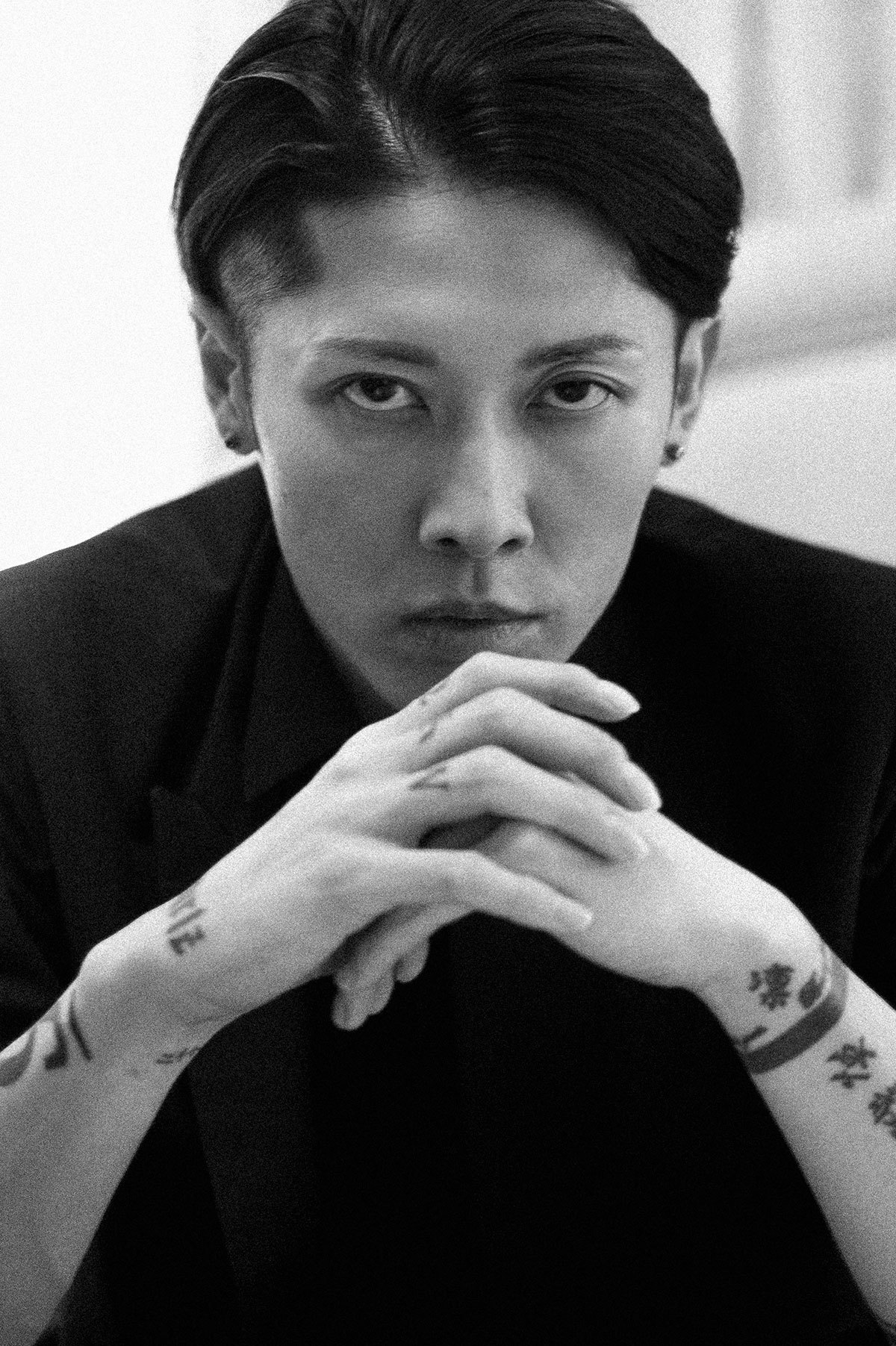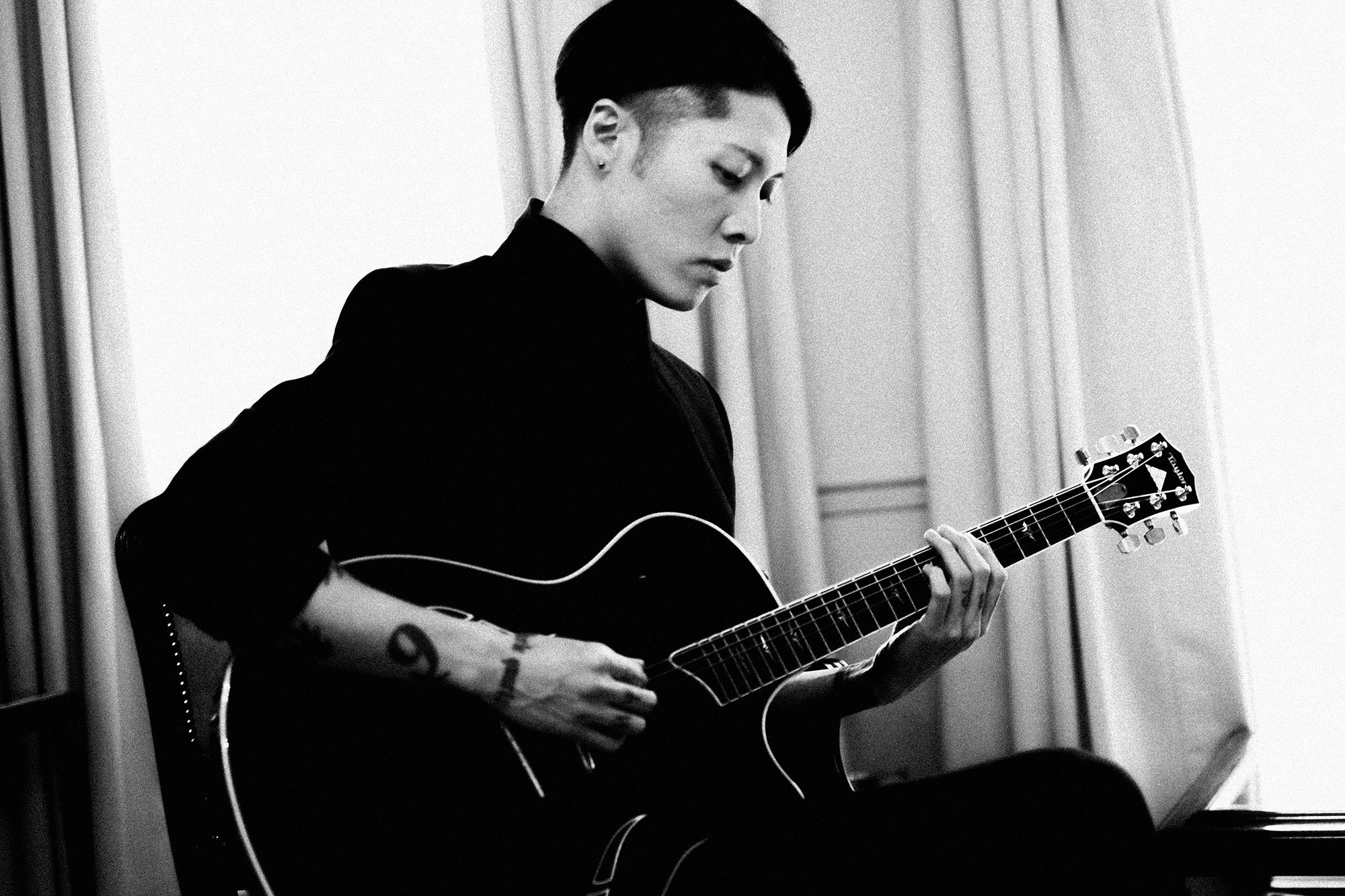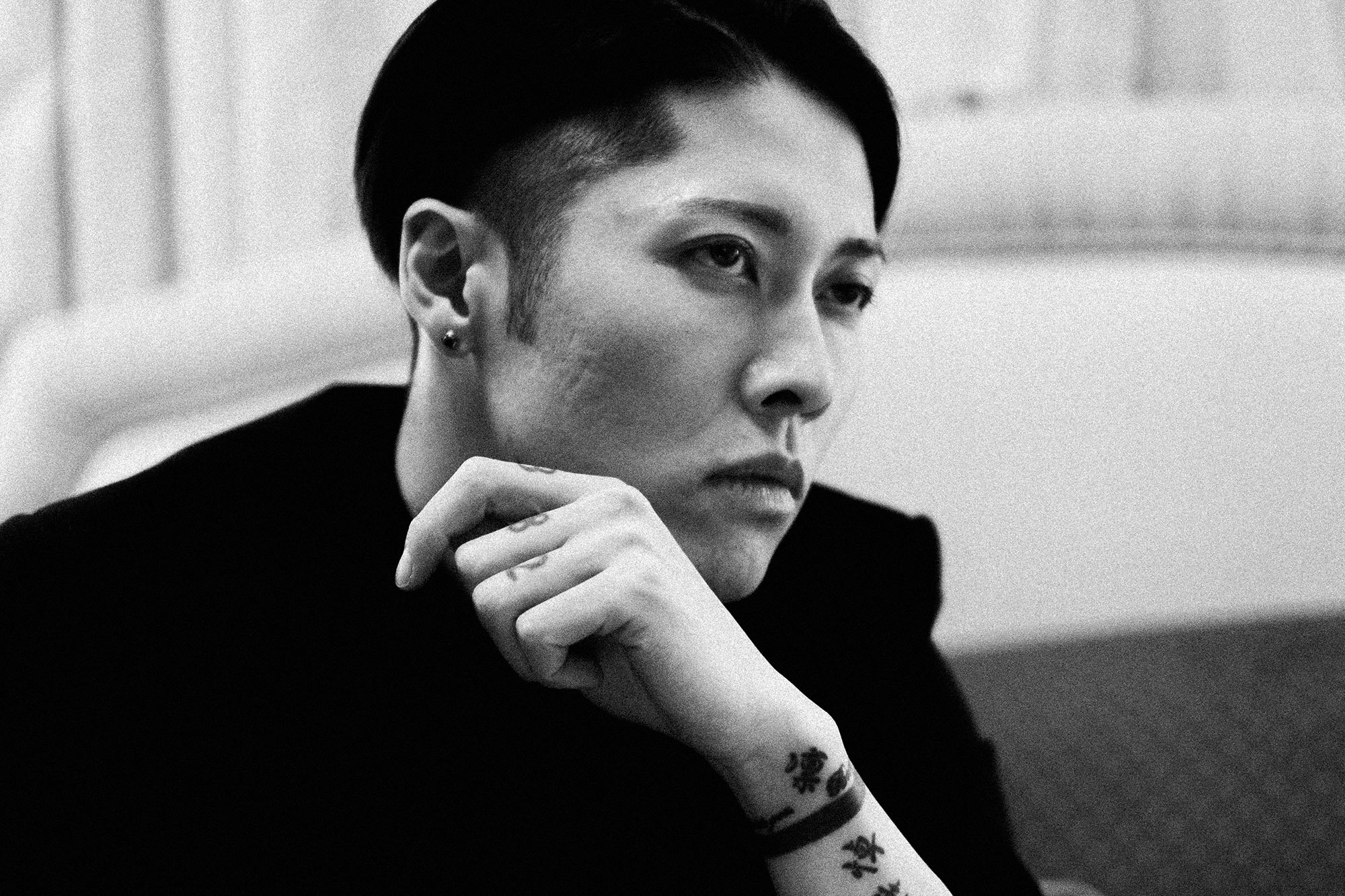Japanese fans know and love him as the pink haired punk rock superstar, but you’ll know him as something entirely different. Cast as the villainous Mutsuhiro Watanabe, in Angelina Jolie’s WWII film Unbroken, this is Miyavi as he’s never been seen before. Swapping his samurai guitar for a bamboo cane, and a full face of makeup for an evil smile, the Osaka native – born Takamasa Ishihara – plays the sadistic general feared for his brutality and famed for his singular torment of Olympic athlete Louis Zamperini, played by Jack O’Connell. Ahead the film’s Boxing Day release, we caught up with the softly spoken pop star to talk about the role of a lifetime, forming an Unbroken band, and why, after seeing their father in action, his kids will never be naughty again.
How did you get involved with Unbroken?
It happened totally out of the blue. I’m a musician. I slap strings, not people. While I was on my world tour I met the Japanese casting director Yoko, who was casting Watanabe at the time, she came over to my office in Tokyo and offered me the part. I wasn’t sure if I was actually capable of doing it, though. I had no experience as an actor and this was never something I expected to do when I studied English eight years ago. And the story is so controversial it’s still a sensitive issue in Japan. I didn’t want to represent a country that I was born and raised in such a negative way.
What made you change your mind?
After I met Angie it changed, she’s so confident and determined and passionate. She said she wanted to create this film as a bridge between America and Japan. But it’s even more than that; the film is about forgiveness, which is something that will always be important. I thought it was a really meaningful message to convey.
What was it like playing someone so brutal?
It was a big challenge for me. The hardest challenge in my life. He’s such a brutal, complex, and complicated character. Angie and I decided at the beginning that we didn’t want to portray him as a typical one-dimensional villain.
I think that what really comes across in the film is that your character is a very human one. Yes, he does unspeakably bad things, but you can see why he does what he does.
Exactly. He’s a human being. When we were researching I read an article about how much he wanted to see his mother while he was hiding in the mountain to escape his criminal acts. While his relationship with his father is something that I can relate to with my own. I was in a professional soccer team and there was so much pressure to be good, but I got injured and had to give up my dream of being a professional football player. Feeling that disappointment and that of those around you is heart wrenching. In the war everything would have been so much worse and intense.
I think the fact that he singled Louis Zamperini out as his victim showed that he was desperate to relate to someone on a human level.
Angelina and I came to realise that Mutsuhiro and Louis are quite similar. He liked Louis but he knew that he shouldn’t. He just wanted to be loved and he wanted to love but he didn’t know how to do it, so he tormented him. The most inspiring thing was when he says to Louis, ”why do you make me hate you?” He was so confused and is such an intriguing character. We wanted to give him the respect he deserved.

What was your off-screen relationship like with Jack O’Connell? Did you guys joke around between takes or did you want to maintain that sense of distance?
Jack is very charming. I wanted to hang out more but I couldn’t understand his accent! We kept our distance while filming but after we finished we all hung out. I had a gig in Sydney and Angie flew my band out and we all played and Jack got on stage and we made an Unbroken band. We played ACDC and Johnny Cash -his favourite artist. I think it’s important to show people that we can go beyond country, culture, nationality, and language and connect. That’s what I try to do with my music and my audience, all over the world.
What was it like working with Angelina?
It was great. She was such a great artist. She is not only an actress. She is a creator, which is why I really respect her motivation. She is like a magnet- everyone was drawn to her. She cares so much about the crew, the actors, the details, and the Japanese history. I was so inspired by her.
How does performing on stage for all of your fans differ from performing on set with a film like Unbroken?
It feels quite similar, actually. Of course it’s different as on stage I can be 100% myself and I’m expressing all my emotions through my music while in the film I’m expressing one single dimension, a very negative one. But it’s all about message and emotion. I learned many things from filming.
What do you think your fans will think of Unbroken? They’re so used to seeing you with a full face of makeup and being really happy and theatrical on stage, not beating prisoners to a bloody pulp.
I don’t know. But I’m confident they will receive the message. It’s the first time they’ll see me not with a guitar but with a bamboo stick.
Are you sad filming is over or relieved, all that violence and brutality must have been so hard to film?
I miss working with everyone like the crew and Angie but filming was really intense.
Are you going to continue on with acting?
Hopefully, if there is an opportunity to. This time this role fit me, and I fit it, but in the future I’d like to play other roles.
What about your music?
I’m working on a new album, so I want to concentrate on that for the time being. I’m gong to have a show in LA the day before the premier. I want to have a balance between singing and acting. But my music is my identity. In the film I play the Japanese guitar, which was really important to me, to share the traditional culture.

What was it like watching yourself back playing such a violent role?
It was weird. It’s impossible to watch the film objectively. I’m not sure yet if my performance was ok.
Have your family seen it?
I’m not sure if I want my kids to see it, as it’s pretty scary.
They are never going to misbehave again!
Exactly, no more messing around at dinnertime! But they will understand the actual message. The more evil I became the more dramatic the story got. It was important. I really believe that Japanese people will receive the message. It’s not about the history; it’s about the fact that we’re all human beings. The scene where Louis runs with the Japanese kids, everything has led to that moment. That’s something we need to pass onto the next generation.
Credits
Text Tish Weinstock
Photography Paul Phung
